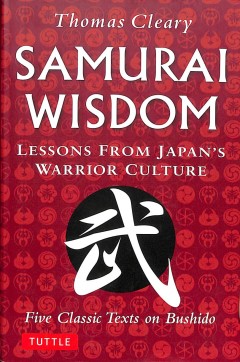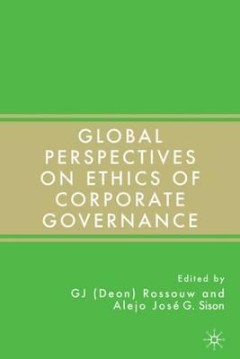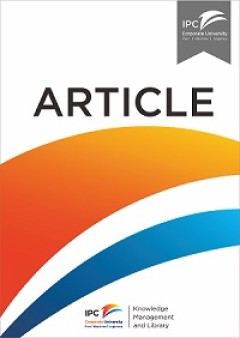Ditapis dengan

Sustainable Value Chain Management
What is an inherently good corporation? A “good” corporation has to be successful in economic terms but simultaneously contribute to the environment and strengthen social coherence. Within its various spheres of influence, it has to work according to universal ethical principles. Many corporations already act as a “good” one and without a lot of discussion about it. Yet, there are other…
- Edisi
- -
- ISBN/ISSN
- 2196-7083
- Deskripsi Fisik
- 424p.
- Judul Seri
- CSR, Sustainability, Ethics & Governance
- No. Panggil
- E-BOOK MG DHE s

Corporate governance: the need to know
Corporate governance has emerged from obscurity into being a mainstream topic which there is a need to know, as well as being incorporated into industrial and commercial training courses. There has been a plethora of reports starting in the USA and spreading to the UK, whose influence, example and model have spread throughout the world. Some main forces explaining the provenance of corporate go…
- Edisi
- Volume 32 . Number 5 . 2000 . pp. 173±178
- ISBN/ISSN
- 0019-7858
- Deskripsi Fisik
- 8 p.
- Judul Seri
- Industrial and Commercial Training
- No. Panggil
- ATC LE VIN c C.1

De-commoditizing change management: A call for the re-positioning of change
- Edisi
- -
- ISBN/ISSN
- -
- Deskripsi Fisik
- -
- Judul Seri
- -
- No. Panggil
- ATC MG BRO d
- Edisi
- -
- ISBN/ISSN
- -
- Deskripsi Fisik
- -
- Judul Seri
- -
- No. Panggil
- ATC MG BRO d

Samurai wisdom : lessons from japan's warrior culture
The ancient warrior culture of Japan produced a sophisticated martial philosophy that we know today as Bushido—the Way of the Warrior. In Samurai Wisdom, author Thomas Clearly provides five important new translations of major Japanese works on Bushido. The writings of the scholar Yamaga Soko and his disciples are among the clearest expositions we have of the core ideals and philosophy under…
- Edisi
- -
- ISBN/ISSN
- 978-0-8048-4008-8
- Deskripsi Fisik
- 256 p, 20 cm ; index
- Judul Seri
- -
- No. Panggil
- LC 170.44 CLE s

Global perspectives on ethics of corporate governance
- Edisi
- -
- ISBN/ISSN
- : 1–4039–7584–1
- Deskripsi Fisik
- xx, 220 p.
- Judul Seri
- -
- No. Panggil
- TXT MG DEO g
- Edisi
- -
- ISBN/ISSN
- : 1–4039–7584–1
- Deskripsi Fisik
- xx, 220 p.
- Judul Seri
- -
- No. Panggil
- TXT MG DEO g

Transcendental leadership
Looks at leadership from a relational perspective. This perspective focuses on the relationship that is created between a leader and a collaborator. We call this relationship a partnership, and distinguish three types of partnerships: transactional, transformational, and transcendental. The type of partnership that the leader is able to create, determines the quality of the collaborator's follo…
- Edisi
- -
- ISBN/ISSN
- -
- Deskripsi Fisik
- 8 p.
- Judul Seri
- -
- No. Panggil
- ATC LE CAR t

Examining how marginalized stakeholders successfully redress their issues : a…
Can marginalized stakeholders whose issues with the firm are unaddressed because of their resource and legitimacy constraints (low salience) increase their salience by capitalizing on certain inherent properties of their stakeholder environment? The purpose of this paper is to examine this question using a real life case of the Coca-Cola controversy in Kerala, India, where a group of local abor…
- Edisi
- Vol. 1 No. 1, 2015
- ISBN/ISSN
- -
- Deskripsi Fisik
- 25 p.
- Judul Seri
- Annals in Social Responsibility
- No. Panggil
- ATC LE SHI e

Corporate social responsibility, ethics, and corporate governance
This inquiry into companies listed on the Ho Chi Minh City Stock Exchange (HOSE) in Vietnam seeks to discern whether such constructs as corporate social responsibility (CSR) and ethics act as antecedents for corporate governance.
- Edisi
- Vol. 8 Iss 4 pp. 547 - 560
- ISBN/ISSN
- 1747-1117
- Deskripsi Fisik
- 16 p.
- Judul Seri
- Social Responsibility Journal
- No. Panggil
- ATC LE TUA c

Defining and enforcing ethical leadership in Nigeria
The purpose of this paper is to examine the current gap existing between ethics theorization and enforcement in the Nigerian leadership system.
- Edisi
- Vol. 1 Iss 1 pp. 25 - 41
- ISBN/ISSN
- -
- Deskripsi Fisik
- 18 p.
- Judul Seri
- African Journal of Economic and Management Studies
- No. Panggil
- ATC LE NNA d
 Karya Umum
Karya Umum  Filsafat
Filsafat  Agama
Agama  Ilmu-ilmu Sosial
Ilmu-ilmu Sosial  Bahasa
Bahasa  Ilmu-ilmu Murni
Ilmu-ilmu Murni  Ilmu-ilmu Terapan
Ilmu-ilmu Terapan  Kesenian, Hiburan, dan Olahraga
Kesenian, Hiburan, dan Olahraga  Kesusastraan
Kesusastraan  Geografi dan Sejarah
Geografi dan Sejarah